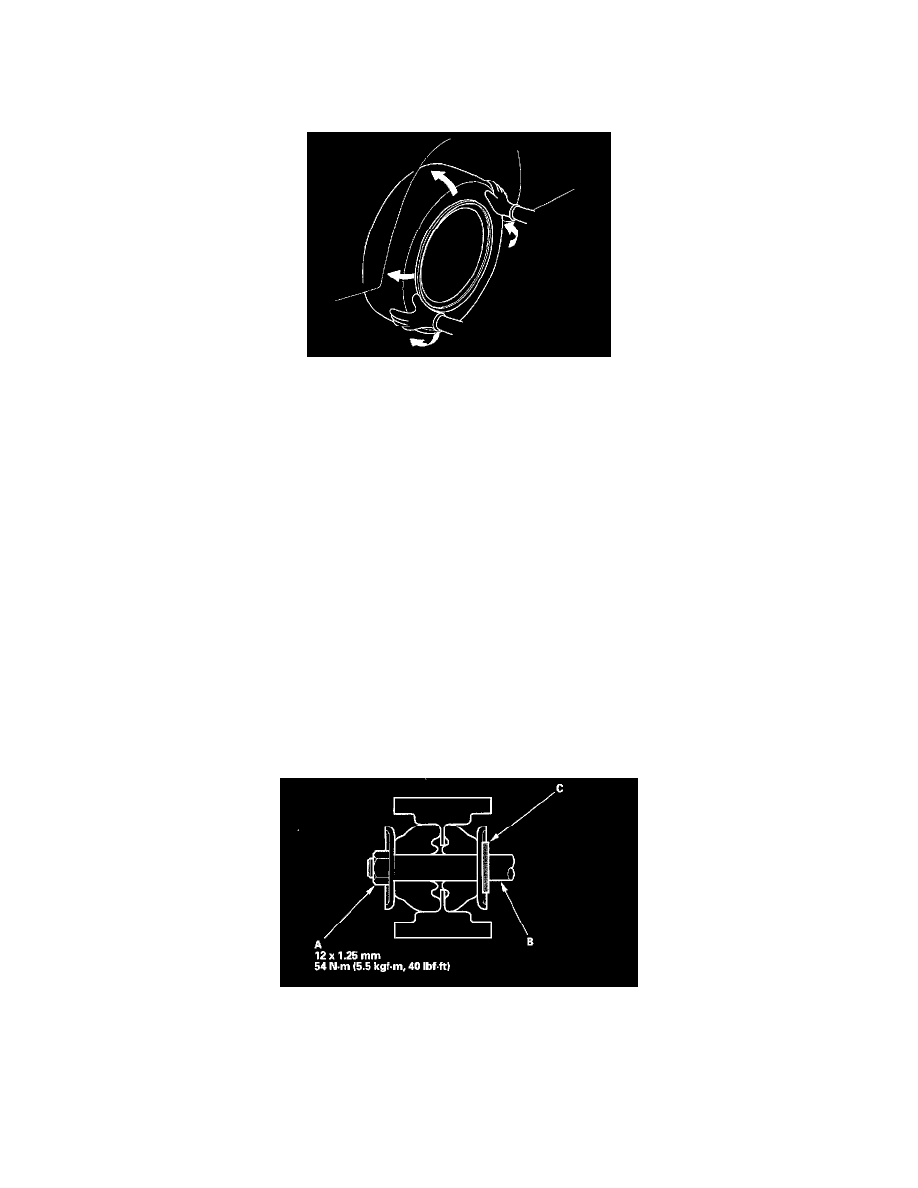3.2TL TYPE S V6-3.2L SOHC (2002)

Alignment: Service and Repair
Wheel Alignment
Caster Inspection
For proper inspection/adjustment of the wheel alignment, check and adjust the following before checking the alignment:
-
Check that the suspension is not modified.
-
Check the tire size and tire pressure.
Tire size:
Type S: P215/50 R17 93 V
Premium: P205/60 R16 91 V
Tire Pressure:
Front/Rear: 32 psi (220 kPa)
-
Check the runout of the wheels and tires.
-
Check the suspension ball joints. (Hold a wheel with your hands and move it up and down and right and left to check for wobbling).
Use commercially-available computerized four wheel alignment equipment to measure wheel alignment (caster, camber, toe, and/or turning angle).
Follow the equipment manufacturer's instructions.
1. Check the caster angle.
Caster angle: 2°48' ± 1°
2. If out of specification, record the caster reading, then adjust the caster.
Caster Adjustment
Caster angle can be adjusted by increasing/decreasing the number of the adjusting shims. Remove and install the radius rod each time the caster angle
is adjusted.
1. Raise the front of the vehicle, and make sure it is securely supported.
2. Remove the self-locking nut (A) on the end of the radius rod (B).
3. Remove the flange bolts at the radius rod (B) on the lower arm, and remove the radius rod.
4. Adjust the caster angle by increasing/decreasing the adjusting shims (C).
Note these items during adjustment:
-
Do not use more than 2 adjusting shims.
-
One adjusting shim changes the caster angle by 35' and the caster angle can be adjusted by 1°10' maximum. One adjusting shim is 3.2 mm
(0.13 inch) in thickness.
5. After the adjustment, install the radius rod onto the lower arm, and tighten the flange bolts.
